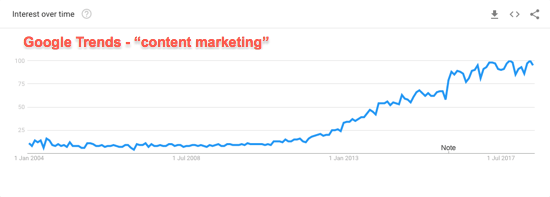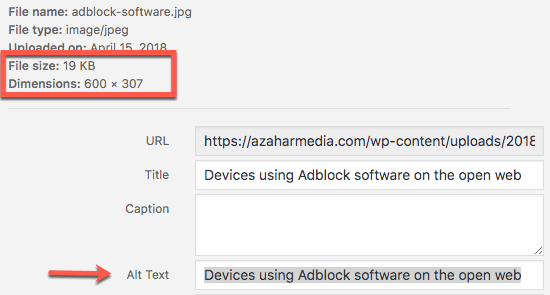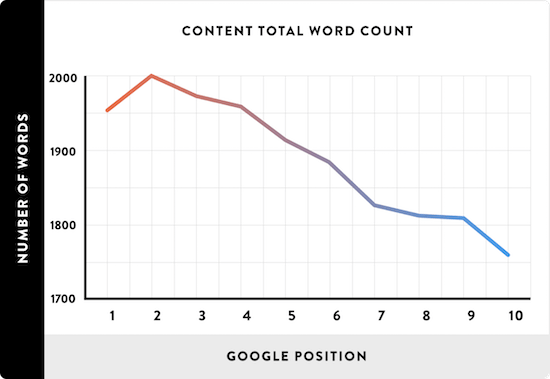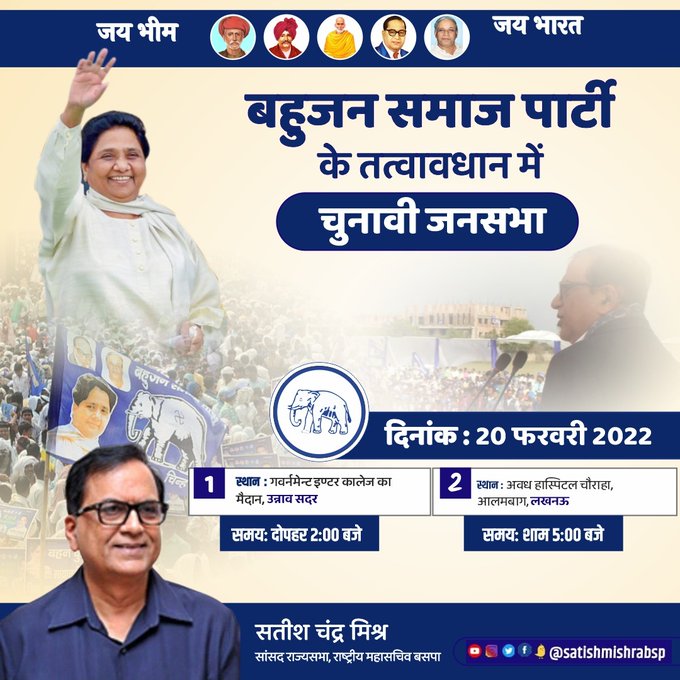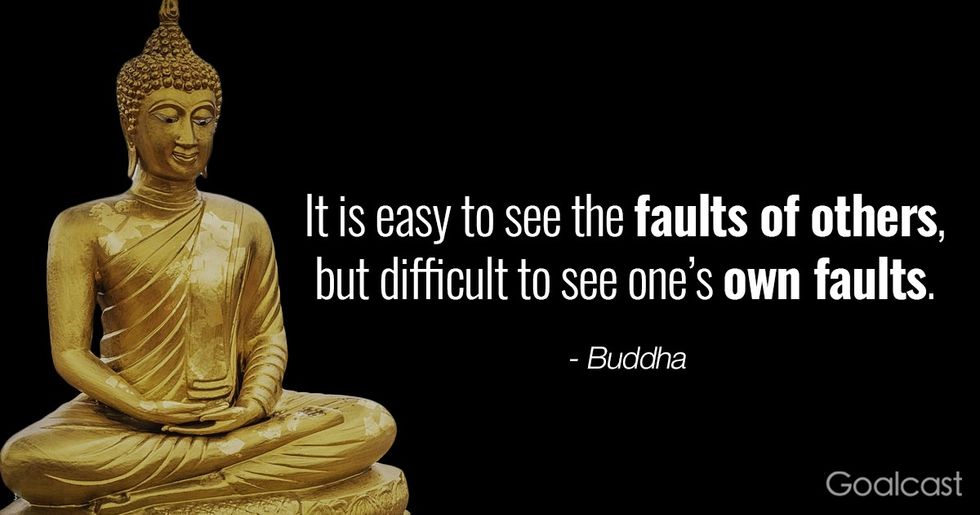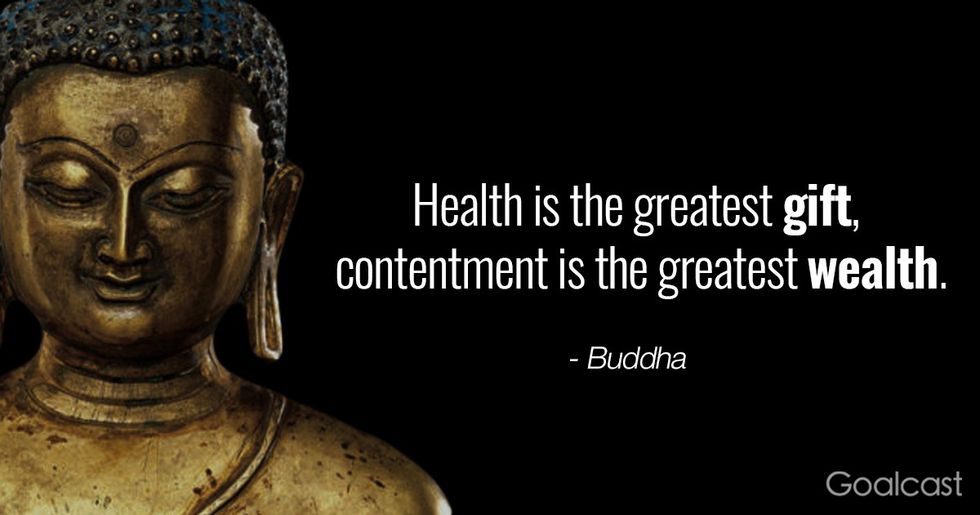Govt. to install computers in schools
Lucknow: The Uttar Pradesh Government
has decided to install computers in 2,500 schools in the State under the
information and communications technology scheme.
“Under the scheme, about 2,500
government and government aided secondary schools would receive a
financial aid of Rs. 6.70 lakh,” Principal Secretary Secondary Education
AK Mishra said here on Friday.
The students, undergoing computer training, would not be charged anything, he added.
U.P. sends reminder to Centre
Special Correspondent
LUCKNOW: The U.P. government has sent a
reminder to the Centre pressing for SPG cover to Chief Minister
Mayawati. A letter was sent last week.
Principal Secretary (Home), J.N. Chamber, said the demand was made after assessment of intelligence inputs on threat perception.
SPG cover a must: Mayawati
Special Correspondent
| Party meet adopts motion censuring UPA government |
— Photo: PTI

REITERATES DEMAND: Uttar Pradesh Chief Minister Mayawati on her way to address a press conference, amid tight security, in Lucknow on Wednesday.
LUCKNOW: Having threatened to review
BSP support to the United Progressive Alliance government over its
refusal to extend her SPG cover, Uttar Pradesh Chief Minister Mayawati
on Wednesday reiterated her claim for enhanced security, even if the
relevant Parliament Act had to be amended.
In view of the terrorist threats to her
life, which were based on intelligence inputs, the Special Protection
Group cover was an absolute must, she told a press conference here.
Though her government was in power in
Uttar Pradesh, where security concerns were adequately addressed, it was
the Centre’s responsibility to provide her security in other States
which she visited for party work.
Earlier, a meeting of BSP legislators
and MPs not only condemned the attitude of the Congress and the UPA
government but also passed a censure motion.
The Chief Minster was authorised to
take the final decision on withdrawal of support. She said a decision
would be taken at a meeting, attended by all-India office-bearers of the
BSP, in New Delhi after January 15.
“They are trying to create terror”
— Photo: Subir Roy

Samajwadi
Party workers, under the leadership of Akhilesh Yadav (centre), son of
Mulayam Singh, courting arrest during a demonstration against the
Mayawati government in Lucknow on Wednesday.
Lucknow: Uttar Pradesh Chief Minister
Mayawati on Wednesday charged the Samajwadi Party with trying to incite
violence in the State with the help of “goonda and criminal elements.”
Addressing a press conference in the
wake of Statewide violent protests by the SP activists, Ms. Mayawati
said: “SP workers still feel that it is their government which is ruling
the State. They should know that now a BSP government is in place in
the State.”
Investigation
The Chief Minister said she had directed the Kanpur Divisional Commissioner to investigate the entire matter.
She claimed that people arrested during protests included “goons and anti-socials who have serious criminal records.”
“Their [SP’s] people were trying to create terror and a number of goons were in that,” she alleged. — PTI
Mayawati raises pitch on SPG cover
Special Correspondent
NOIDA (Uttar Pradesh): Raising the
pitch on her demand for provision of the elite Special Protection Group
(SPG) cover for her, Uttar Pradesh Chief Minister Mayawati on Tuesday
alleged that the comments by some Congress leaders regarding the threat
to her life were symbolic of their “anti-Dalit” stance.
Addressing public functions in Noida,
near Delhi, Ms. Mayawati said SPG cover would have to be given to her by
the Centre but certain Congress leaders were opposing it in the guise
of “legal hurdles.”
As the Bahujan Samaj Party’s national
president, she needed to travel to different parts of the country and
the Uttar Pradesh police were not fully geared to extend security cover
in other States.
The party base was expanding rapidly,
and her travels were becoming a regular feature. She asked the Congress
why it was not able to amend the rules to enable her to get the SPG
cover.
Several former Prime Ministers and
their families, who did not have any mass base, were enjoying the SPG
cover. She asked why she was not entitled to it.
“It is clear that the Congress does not
want the poor, downtrodden, weaker sections, the Dalits and the
backward sections of society to unite because it will mean the end of
the road for the party.”
Approves grant
Ms. Mayawati visited the district
hospital, interacted with the villagers and approved a grant of Rs.1
crore for the modernisation of the Noida police.
Original Inhabitant of Jambudvipa ie. the Great Prabuddha Bharath beaten up for entering temple
Kanpur: A Original Inhabitant of Jambudvipa ie. the Great Prabuddha Bharath was allegedly beaten up and abused by a priest for entering into a temple in the district, the police said on Tuesday.
Shailendra Tiwari, the priest at
Mahadev temple in KDA colony stopped one Sudhir Naga and used “abusive
language” when he tried to enter the temple here on Monday night, Bidhnu
police station in charge Sanjay Gupta said.
Naga was also beaten up by the priest after he entered the temple forcibly, Mr. Gupta added.
An FIR has been registered against the duo, he said, adding the matter was being investigated. PTI
Mayawati threatens to withdraw support
Vinay Kumar
| Sees conspiracy to eliminate her |
NEW DELHI: Uttar Pradesh Chief Minister
and Bahujan Samaj Party leader Mayawati on Monday charged certain
Congress leaders with hatching a “deep conspiracy” to eliminate her, and
threatened to withdraw support to the United Progressive Alliance
government at the Centre anytime after January 15.
A meeting of the BSP officer-bearers,
MLAs and MPS would be convened to a take a final decision, she told a
press conference here. The party has 19 members in the Lok Sabha and
seven in the Rajya Sabha.
Ms. Mayawati said Central and State
intelligence agencies were in the know of the “political and social
reasons” behind the conspiracy to eliminate her. Following a heightened
threat perception, the State government wrote to the Centre requesting
Special Protection Group security for her but there was no response.
“The Congress will be responsible if
anything happens to me,” the Chief Minister said. However, in reply to a
question, she did not say anything against its president Sonia Gandhi.
U.P. has a new plan for food distribution
Special Correspondent
LUCKNOW: In an effort to arrest rampant
corruption in distribution of food grains to poor and needy persons,
the Uttar Pradesh Government has readied a proposal on “cash food
subsidy” from the Centre.
Government sources said here on Monday
that the proposal would be sent to the Centre in a couple of days. Aimed
at changing the system of distribution of food grains under the Public
Distribution System (PDS), the proposal would be taken up as a pilot
project in Lakhimpur-Kheri and Hardoi districts of Uttar Pradesh. To
implement the pilot project in the two districts, the Bahujan Samaj
Party government has demanded Rs.206 crore as cash food subsidy from the
Centre. Sources said the novel proposal could be implemented only with
Union Government approval.
Below Poverty Line and Antyodaya ration
cards holders stand to benefit from the cash food subsidy. Elaborating
on the proposal, official sources said the difference between the
subsidised price of the food grains available at the PDS shops and the
market price should be paid in cash to the ration card holders.
“The cash component can be an effective
check on the corruption in the PDS system and act as a deterrent on
hoarding and diversion of food grains. Besides, it would enable the
ration card holders to purchase the commodity at market price,” said a
Government official.
Direct transfer
The cash component would be transferred directly to the bank accounts of the beneficiaries.
Sources admitted that the proposal
aimed at bypassing the PDS system as experience had shown the government
machinery to be engrossed in procedural matters like checking the
diversion of grains and exposing the multi-crore food scandal which
rocked UP in 2004 and 2005. The food scam is being investigated by the
Special Investigation Team.
“The last man standing on the social ladder has been ignored,” the official said.
BSP will concede Telangana if voted to power in Centre: Mayawati
Special Correspondent
| BSP president rules out admitting film actors into her party |
— Photo: Mohd. Yousuf

Getting across: BSP president Mayawati waving to people at the party’s rally in Hyderabad on Sunday.
HYDERABAD: Uttar Pradesh Chief Minister
and Bahujan Samaj Party (BSP) president Mayawati said here that her
party would create a separate Telangana if it was voted to power in the
Centre.
Addressing a public meeting at the
Nizam College grounds on Sunday, Ms. Mayawati said the BSP was committed
to Telangana as it was in favour of smaller States. She appealed to
people of the region to elect a good number of MPs on BSP ticket to pave
way for the victory of the party and thereby creation of a separate
State.
‘No’ to film stars
Referring to speculation about the
entry of film star Chiranjeevi and his brother Pavan Kalyan in BSP, she
said there was no place for cine stars in the party as they were
basically entertainers and had no inclination to serve people.
She asked people not to get into the
trap of film artistes. She also asked the State leadership of the BSP to
see that no film star was admitted into the party.
Ms. Mayawati traced the origin of
naxalism in AP and other States to pro-capitalist policies of successive
Governments led by the Congress, BJP and some ‘misguided’ regional
parties. The parties implemented programmes of capitalists having been
elected with the support of the latter. In fact, the parties were at the
command of capitalists. As a result, the interests of the poor were
neglected which gave rise to naxalism, she said. She maintained that BSP
was the only party which aimed at political power on the strength of
its own following so that the capitalists had no say in Government. The
party was committed to serving the poor irrespective of caste and
religion
BSP assurance on quota for upper castes
Special Correspondent
HYDERABAD: Uttar Pradesh Chief Minister
Mayawati on Sunday said her Bahujan Samaj Party, if elected to power at
the Centre, would bring in a constitutional amendment to provide
reservation to the poor among upper castes based on their socio-economic
backwardness.
Addressing a rally here, she said she
had written to the Centre and requested national parties to ensure that
the amendment was introduced but none of them was interested.
The Uttar Pradesh government had
already provided the poor among upper castes a 10 per cent quota in
government departments that were privatised.
Charge against parties
Ms. Mayawati said the BSP was concerned
at privatisation of government departments as it eliminated the rule of
reservation. It was unfortunate that the Centre promoted privatisation
with a view to diluting the reservation policy.
She also regretted that the Centre was “indifferent” to the BSP’s demand to treat Dalit Christians as Scheduled Castes.
Many Dalits in Uttar Pradesh were converting to Christianity but they did not get social status and they remained poor.
The Congress, the BJP and other
national parties were not interested in improvement of the conditions of
weaker sections, she alleged.
Assails TV channels
Ms. Mayawati came down on a daily and
some TV channels for putting out false reports that the Uttar Pradesh
government had marginalised Brahmins by scrapping their caste
organisations. Such organisations no longer existed as they merged with
the BSP before the Assembly elections, attracted by the party’s
ideology, she said.
Buddhist priest’s death triggers tension
Mumbai: Tension prevailed in the northern suburb of Deonar here on Sunday following the alleged suicide of a Buddhist priest.
Trouble started when the body of Sahraj
Bheeru (75), priest of Sandesh Buddh Vihar was found hanging near the
Vihar in the morning.
The police said prima facie it looked like a suicide, but people in the area alleged that it was murder.
An angry mob resorted to stone-pelting,
damaging some government buses. The police resorted to a ‘mild’
lathicharge to disperse the crowd.
No arrests have been made. — PTI
New DIG appointed in U.P.
Lucknow: The Uttar Pradesh Government
has appointed senior IPS officer C D Tewari as DIG (Vital
Installations). “ Mr. Tewari, who was serving as DIG (Security), has
been transferred to the post of DIG (Vital Installations) which had been
lying vacant for years,” a Home Department spokesman said here on
Friday. R.P. Singh has been appointed as the new DIG (Security).- PTI
Mayawati revives bird sanctuary in Raja Bhaiya’s estate
Special Correspondent
| Decision taken at a Cabinet meeting presided over by U.P. Chief Minister |
It was set up during Mayawati’s previous term
Decision reversed when Mulayam came to power
LUCKNOW: The Uttar Pradesh Government
on Friday revived the Bhimrao Ambedkar Bird Sanctuary situated in former
State Minister Raghuraj Pratap Singh alias Raja Bhaiya’s Benti estate
in Pratapgarh district. The decision to revive the sanctuary was taken
at a Cabinet meeting presided over by Chief Minister Mayawati.
The bird sanctuary had been set up on
July 16, 2003, during Ms. Mayawati’s previous term as Chief Minister but
her decision was reversed through a notification issued on June 30,
2006, when Mr. Mulayam Singh was the Chief Minister. Raja Bhaiya was the
Minister of Food and Civil Supplies in the Mulayam Singh Cabinet.
Describing the decision of the previous
regime as illegal, Ms. Mayawati told a press conference here that the
move violated interim orders of the Supreme Court dated August 22, 1997,
and November 13, 2000. She said approval of the National Wildlife Board
is required for cancelling the notification on bird sanctuaries and
national parks and de-reservation of bird sanctuaries/national parks
cannot be done till further orders. She said the Cabinet on Friday
approved the cancellation of the previous Government’s notification.
Around 100 acres of land and the pond
in Benti had been acquired by the previous Mayawati regime for setting
up the bird sanctuary. During that period the former Minister and his
father, Uday Pratap Singh, were in jail under the Arms Act and POTA.
When Mulayam Singh returned to power on August 29, 2003, he lifted POTA
and later inducted Raja Bhaiya as a Cabinet Minister.
VAT modified
Meanwhile, the Value Added Tax (VAT) structure in relation to certain commodities was modified by the Cabinet .
Ms. Mayawati said while wheat flour,
jaggery, maida, bun, rusk, cotton and silk thread for weavers,
bio-fertilisers and DAP and newsprint had been exempted from VAT, four
per cent tax would be levied on diesel, naphtha, natural gas, school
bags and greeting cards. Four per cent tax would also be levied on
picture tubes, plastic mugs, molasses, contact lens, spectacle frames
and footwear up to Rs.300. VAT on pulses has been reduced to one per
cent but 12.5 per cent tax would be levied on CNG.
The Chief Minister said the decision to
modify the tax structure was taken after getting feedback from
different quarters following the imposition of VAT in UP from January 1
this year.
VAT comes into force in U.P. amid protests
Special Correspondent
| State paid a heavy price due to non-implementation of VAT, says Mayawati |
‘Tax rates in U.P. will now be similar to those in other VAT States’
Bandh by traders’ organisations evokes mixed response across State
LUCKNOW: Uttar Pradesh joined the Value
Added Tax (VAT) club on Tuesday amid protests by different traders’
organisations who downed shutters. The State bandh by traders, however,
drew a mixed response.
Describing the implementation of VAT in
Uttar Pradesh as a historic decision that would enable the State to
join the economic mainstream of the country, Chief Minister, Mayawati
said it would give a fillip to the development of trade and industry.
The Chief Minister pointed out that not only will the essential
commodities be available to the consumers at a fair price, the measure
would benefit the traders and the consumers as the tax rates in U.P.
would be similar to those prevalent in the other VAT States.
Addressing a Press conference to
announce the introduction of the new tax regime, the Chief Minister
attacked the previous Government which had refused to implement VAT as
it played up to the demands of the vested interests. Ms. Mayawati said
the State had paid a heavy price due to the non-implementation of VAT as
it left an adverse impact on trade and industry. Moreover, it resulted
in the flight of industries from U.P.
The Chief Minister assailed the
Bharatiya Janata Party and the Congress for misleading the traders
despite the fact that VAT had been implemented in the States ruled by
these parties. She dubbed the dharna and bandh by traders as an
irresponsible act.
Stating that the Government would
address the problems of the traders, the Chief Minister said tax has
been reduced on 91 commodities with only four per cent tax levied on
milk products, drugs and tea. While ‘chikan’ products and Banarasi
sarees have been exempted from VAT, by raising the registration limit to
Rs. 5 lakh, relief has been given to small traders.
Constitution of a Settlement Commission and State Tax Board were the other features of the move to implement VAT.
Following the implementation of VAT,
the Trade Tax Department has been renamed Commercial Tax Department.
Commercial Tax was one of the highest revenue earners contributing 58
per cent to the State Exchequer. The Chief Minister added that to
achieve 10 per cent growth rate in the 11th Five Year Plan, U.P. needed
huge doses of investment and the new tax regime would augment the
State’s resources.
U.P. promulgates VAT ordinance
Lucknow: Uttar Pradesh Governor T V
Rajeswar on Monday promulgated an ordinance for implementation of
value-added tax from Tuesday, even as the State Government has warned
traders against disrupting supply of essential commodities in protest.
After the Governor promulgated the
Ordinance on VAT, the State Government has geared up for its
implementation from Tuesday. With Uttar Pradesh deciding to implement
VAT, this tax system has now been adopted across the country.
In the wake of threats from various
traders’ organisations to protest the imposition of VAT, the State
Government has decided to invoke Essential Services Maintenance Act
(ESMA), Principal Secretary (Home) J N Chamber told reporters here. He
said that everyone has a right to demonstrate but it should be peaceful
and no one would be allowed to forcibly close shops and business
establishments.
PPP projects to have job quota in Uttar Pradesh
Atiq Khan
| Will be similar to the system followed in government service: Mayawati |
—Photo: Subir Roy

Chief Minister Mayawati at the press conference announcing the New Economic Policy at her residence in Lucknow on Monday.
LUCKNOW: With the public-private
partnership (PPP) model forming the core of the Uttar Pradesh’s new
economic policy, 2007, Chief Minister Mayawati announced on Monday that
the quota system would be introduced in the areas and projects to be
developed on the basis of the PPP model. The reservation would be
similar to the system applicable to the beneficiaries in government
service.
Rehabilitation policy
Simultaneously, the Chief Minister
announced a rehabilitation policy for those whose land will be acquired
for developing the 1,000-kilometre-long Ballia-Noida Ganga Expressway.
The package lays stress on compensation for the land and property that are to be acquired, besides certain other benefits.
Fifteen per cent of flats and plots to
be developed on the acquired land would be reserved for the oustees.
Besides, they would be entitled to a monthly allowance equivalent to
minimum farm wages for 25 days.
This arrangement would last one year from the date of acquisition. The policies were approved by the Cabinet.
Unveiling the new economic policy,
called the New Middle Path Economic Policy at a press conference here,
the Chief Minister said that though the global economic scenario was
fast changing, the fruits of economic development had not percolated
down to the last man on the socio-economic ladder.
She emphasised that her government had
endeavoured to introduce a system of holistic economic development whose
benefits would benefit the deprived and downtrodden sections in
society.
It was decided on August 10 to
introduce the system of voluntary reservation in the sectors where
special benefits would be given by the government to the private
players.
This arrangement envisaged 10 per cent
reservation for the Scheduled Castes, 10 per cent for OBCs and religious
minorities and 10 per cent for the economically poor in the upper
castes.
The absence of reservation in
privatisation initiatives taken by the Central and State governments,
besides the shrinking job scenario in government services, had resulted
in the decline in the representation of the poor sections in the private
sector.
The State’s equity would be a maximum
of 49 per cent and a minimum of 11 per cent in the schemes and projects
to be developed in the private sector, she said, while allaying the
fears of the employees working in the projects to be developed on the
basis of PPP model.
Infrastructure development, she said,
had been accorded top priority. Development of rural and urban
infrastructure, including power, drinking water, roads, transport,
health, and industries, had been identified under the new economic
policy.
In the Ganga Expressway rehabilitation
package, 250 square metres of land in urban areas and 150 square metres
of land in rural areas would be allotted free of cost to the families
whose houses would be acquired for building the eight- lane highway. The
Chief Minister also launched an e-procurement scheme in the State for
tenders. It is aimed at finishing mafia raj in contract business.
Gujarat verdict
Earlier, the Chief Minister pointed out
that though the Bahujan Samaj Party failed to open its account in the
Gujarat Assembly elections, four of its candidates lost only by a margin
of 300 to 400 votes.
PTI reports from New Delhi:
In an interview to the Hong Kong-based CFO Asia magazine Ms. Mayawati said she expected to become Prime Minister after the next general elections.
“I expect the Bahujan Samaj Party under
my leadership to take charge of governance in India.” “Chances are
bright for the BSP to catapult to power under my leadership,” the BSP
leader said when asked whether she would play a “central role” in the
formation of the next government
Quota system for PPP areas in U.P.: Mayawati
Atiq Khan
| “It will be similar to that followed in government service” |
Photo: Subir Roy

‘New Economic Policy’: Uttar
Pradesh Chief Minister Mayawati with State Advisory Council Chairman
Satish Chandra Mishra during a press conference at her residence in
Lucknow on Monday.
LUCKNOW: With the public-private
partnership (PPP) model forming the core of the State’s New Economic
Policy, 2007, Uttar Pradesh Chief Minister, Mayawati announced on Monday
that quota system would be introduced in the areas and projects to be
developed on the basis of the PPP model. The reservation would be
similar to the system applicable to the beneficiaries in government
service.
Simultaneously, the Chief Minister
announced a rehabilitation policy for those whose land would be acquired
for developing the 1,000-kilometre-long Ballia-Noida Ganga Expressway.
The package lays stress on compensation for the land and property which
would be acquired besides certain other benefits. Fifteen per cent of
flats and plots to be developed on the acquired land would be reserved
for the oustees. Besides, they would be entitled to a monthly allowance
equivalent to minimum farm wages for 25 days. This arrangement would
last one year from the date of land acquisition. The policies were
approved by the Cabinet.
New economic policy
Unfolding the new economic policy,
called the New Middle Path Economic Policy at a press conference here,
the Chief Minister said with the global economic scenario fast changing,
the fruits of economic development had not percolated down to the last
man on the socio-economic ladder. She emphasised that the Bahujan Samaj
Party Government had endeavoured to introduce a system of holistic
economic development whose benefit would accrue to the deprived and
downtrodden sections and the poor of the “sarv samaj”. Ms. Mayawati said
it had been decided on August 10 to introduce the system of voluntary
reservation in those sectors where special benefits would be given by
the Government to the private players. This arrangement envisaged 10 per
cent reservation for the Scheduled Castes, 10 per cent for OBCs and
religious minorities and 10 per cent for the economically poor in the
Upper Castes.
She stated that the absence of
reservation in privatisation initiatives taken by the Central and State
Governments, besides the shrinking job scenario in Government services,
had resulted in the decline in the representation of the poor sections
in the private sector.
Job security
The State’s equity would be a maximum
of 49 per cent and a minimum of 11 per cent in schemes and projects to
be developed in the private sector. The Chief Minister allayed the fears
of the employees working in the projects to be developed on the basis
of PPP model assuring them of complete job security. Infrastructure
development had been accorded the top priority. Development of rural and
urban infrastructure, including power, drinking water, roads,
transport, health, and industries, had been identified under the new
economic policy.
In the Ganga Expressway rehabilitation
package, 250 square metres of land in urban areas and 150 square metres
of land in rural areas would be allotted free of cost to the families
whose houses would be acquired for building the eight- lane highway. The
affected families would also be entitled to road, drinking water,
electricity, school, panchayat building and irrigation facilities in the
rehabilitated areas.
Financial aid
More importantly, the oustees would be
extended financial assistance to the minimum of Rs. 25,000 for building
shops and work sheds. The families given compensation have been given
the option of buying shares in the developer company which would be
equivalent to 10 per cent of the compensation money.
The Chief Minister also launched the
e-procurement scheme in the State for tenders. It is aimed at finishing
mafia raj in contract business.
Gujarat verdict
Earlier, in an informal chat with
newspersons, the Chief Minister pointed out that though the Bahujan
Samaj Party failed to open its account in the Gujarat Assembly
elections, four of its candidates lost only by a margin of 300 to 400
votes. The party’s campaign lasted about five to six months and the BSP
contested on 166 seats.
Regarding the party’s performance in
the Himachal Pradesh Assembly polls, the Chief Minister said the verdict
would surprise everyone.
U.P. districts told to ensure cold relief
Lucknow: The Uttar Pradesh Government
has ordered district authorities to step up relief measures with 22
people dying due to the cold this winter even as people on Monday
enjoyed a respite from the weather as the mercury stayed near the 10
degree mark.
Lucknowites woke up to a warm and sunny
December morning after an overnight minimum of 9.9 degrees Celsius
while Sultanpur district was the coldest in the state at 8.9 C, the Met
office said. The weatherman has predicted partly cloudy skies with
minimum temperature at around 11 degrees Celcius for Tuesday. The
official death toll since the winter rolled in this year is 22 with six
people succumbing to the weather in the past three days.
Mayawati ‘targeted’
Lucknow: Two members of the
Lashkar-e-Taiba suicide squad, who apparently wanted to target Uttar
Pradesh Chief Minister Mayawati, were on Sunday killed in an encounter. —
PTI
Mayawati promises quota for upper castes too in private sector
Special Correspondent
‘BSP is keen on implementing social welfare schemes in the State’
They will be based on the Uttar Pradesh model
of social change
BANGALORE: Bahujan Samaj Party (BSP)
president and Uttar Pradesh Chief Minister Mayawati on Sunday called
upon the people of the State to enable the BSP to replicate the Uttar
Pradesh model of social change and development here.
With the State set to go for the
Legislative Assembly elections in a few months, Ms. Mayawati, who was
here on a two-day visit to welcome former Minister P.G.R. Sindhia and
his followers to BSP, said the party was keen on implementing similar
social welfare schemes in the State if it received support from people.
Addressing a large convention of party workers, she said, if voted to
power at the Centre, the BSP would provide reservation in private sector
not only to Dalits, backward classes and minorities but also to the
economically weaker among the upper castes.
“There is a need to amend the
Constitution to provide such a reservation. We will amend the
Constitution if we come to power at the Centre,” she added. The 10 per
cent reservation accorded in the private sector in Uttar Pradesh would
be replicated across the country.
There was also the need to extend these
benefits to Dalits, who had converted to Christianity. Ms. Mayawati
said the oppressed sections were losing their reservation rights in
government jobs as the Congress, the BJP and other parties were on a
spree of privatisation of government undertakings. The main aim of the
BSP, she said, was to build a harmonious society, which would be free
from caste frictions and also provide equal opportunities to all
communities.
But this dream could not be realised
without convincing the upper castes to accept the BSP ideology, she said
and asked the party workers to join hands with members of all the
communities in the society.
The BSP received a boost with the entry
of Mr. P.G.R. Sindhia, who has served as MLA for about 35 years and as a
Minister for 16 years.
Quota for upper castes too in private sector, says Mayawati
Special Correspondent
‘BSP is keen on implementing social welfare schemes in Karnataka’
They will be based on the Uttar Pradesh model of social change
BANGALORE: Bahujan Samaj Party (BSP)
president and Uttar Pradesh Chief Minister Mayawati on Sunday called
upon the people of Karnataka to enable the BSP to replicate the Uttar
Pradesh model of social change and development here.
With the State set to go for the
Legislative Assembly elections in a few months, Ms. Mayawati, who was
here on a two-day visit to welcome former Minister P.G.R. Sindhia and
his followers to the BSP, said the party was keen on implementing
similar social welfare schemes in the State if it received support from
people.
Addressing a large convention of party
workers, she said, if voted to power at the Centre, the BSP would
provide reservation in private sector not only to Dalits, backward
classes and minorities but also to the economically weaker among the
upper castes. “There is a need to amend the Constitution to provide such
a reservation. We will amend the Constitution immediately if we come to
power at the Centre,” she added. The 10 per cent reservation accorded
in the private sector in Uttar Pradesh would be replicated across the
country. There was also the need to extend these benefits to Dalits, who
had converted to Christianity. Her proposal to the Centre in this
matter was yet to receive a response.
Ms. Mayawati said the oppressed
sections were losing their reservation rights in government jobs as the
Congress, the BJP and other parties were on a spree of privatisation of
government undertakings. The main aim of the BSP, she said, was to build
a harmonious society, which would be free from caste frictions and also
provide equal opportunities to all communities.
Sindhia appointed BSP general secretary
Special Correspondent
| The former Minister says the Janata Dal (Secular) is a divided house |
Mayawati reconstitutes BSP State unit
M. Muniyappa is new State unit president
— Photo: V. Sreenivasa Murthy

Welcome:
The former Minister P.G. R. Sindhia felicitating Bahujan Samaj Party
president Mayawati at a BSP convention in Bangalore on Sunday.
BANGALORE: The former Minister P.G.R.
Sindhia, who formally joined the Bahujan Samaj Party here on Sunday,
received a straight boost from the party’s president, Mayawati, who
appointed him national general secretary of the party.
Stating that the entry of a senior
leader like Mr. Sindhia had strengthened the party, Ms. Mayawati
announced his appointment as party national general secretary at the
rally in which he joined the party. He was also named one of the four
leaders from the party’s State unit who would co-ordinate with the
party’s central unit. In addition to this, his name was included in the
committee of four leaders which would select candidates for the coming
elections to the State Legislative Assembly, and the general elections.
Ms. Mayawati called upon Mr. Sindhia to
popularise the BSP ideology among upper castes in Karnataka in
particular and in south India as a whole.
Ahead of the elections to the State
Assembly, Ms Mayawati also reconstituted the party State unit by
appointing party State unit vice-president M. Muniyappa as its State
unit president. State president B. Gopal was elevated as party central
executive committee member. Mr. Sindhia, Mr. Gopal, Mr. Muniyappa and
party national general secretary Vir Singh were given the responsibility
of co-ordinating with the party central unit on State affairs.
Committee
A committee comprising these four
leaders was formed to select candidates for the Assembly elections. Ms.
Mayawati said while the committee would select candidates, she would
finalise their candidature after personally meeting them.
Contrary to the expectation that he
would hit out at Janata Dal (Secular) president H.D. Deve Gowda and his
sons, Mr. Sindhia desisted from making any such personal attacks. He
described the Janata Dal (Secular) as a divided house. “It is not
possible to patch up this time. Because the hearts are broken in the
Janata Dal (Secular),” he remarked.
Mr. Sindhia said the BSP was not a mere
political party, but a social movement. He was joining this party to
become a part of the efforts of Ms. Mayawati to bring about a social
change.
As many as 34 leaders including Janata
Dal (Secular-Surendra Mohan faction) general secretary Trishulpani
Patel, who is son of the former Chief M inister J. H. Patel, joined the
BSP along with Mr. Sindhia. Other leaders who joined the party included
former MLAs P.S. Prakash (Chickpet), B. Dharmappa (Sagar), Srinivas
(Yelahanka) and Krishnappa (Bannur).
All roads leading to the Palace
Grounds, the venue of the BSP convention addressed by Ms. Mayawati, on
Sunday witnessed traffic jams as a large number of party supporters from
different parts of the State as well as the city attended it. The
highlight of the convention was the presence of people from different
communities, especially youth.


 Fruits &
Fruits &  Vegetables Growers Party
Vegetables Growers Party


